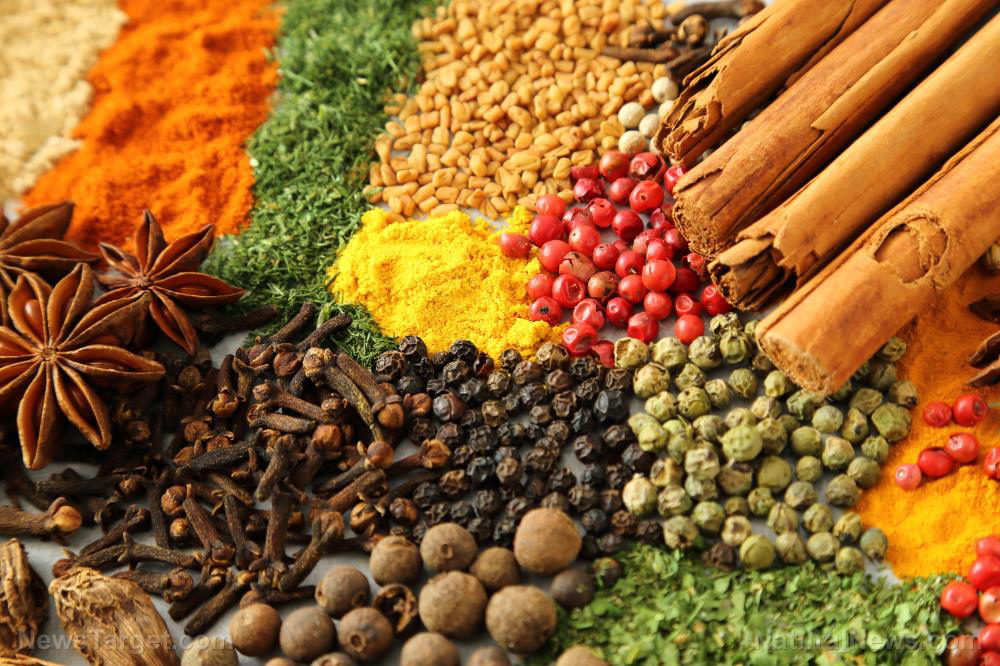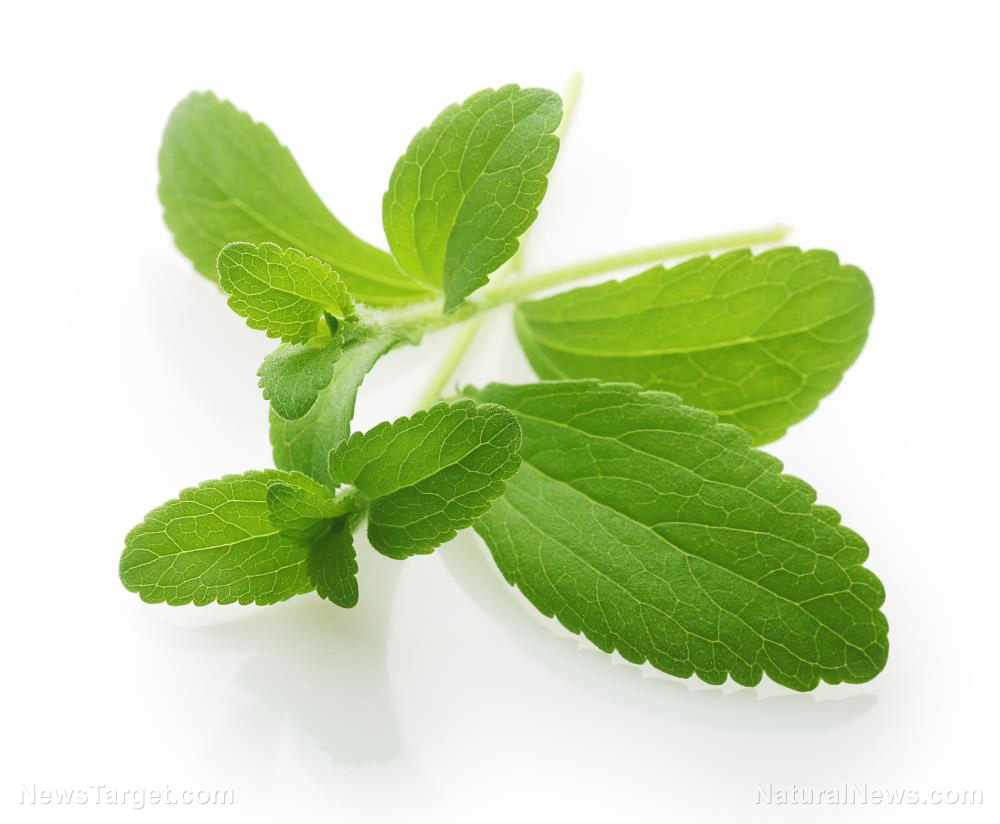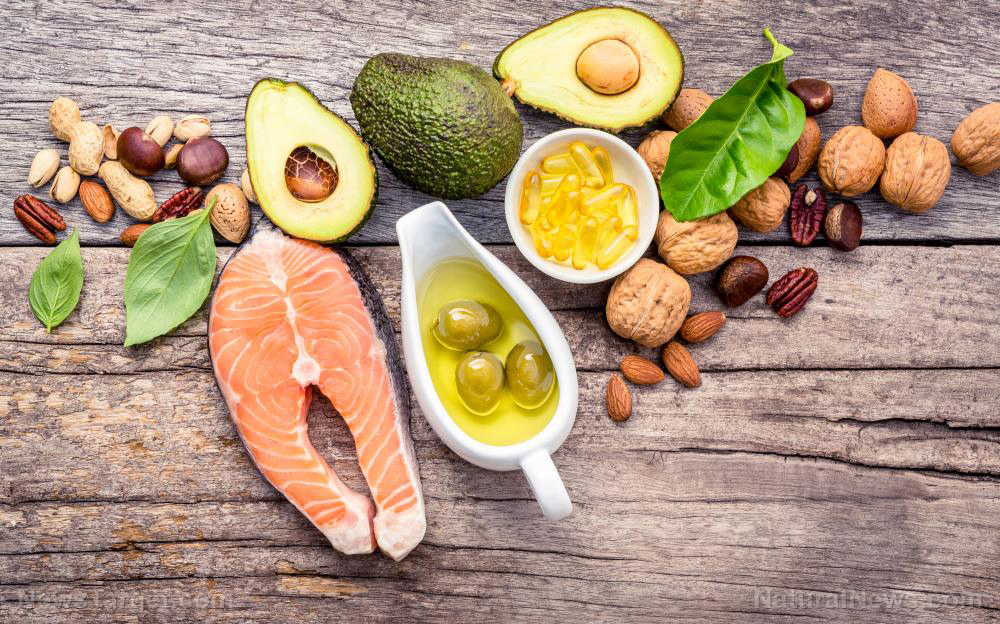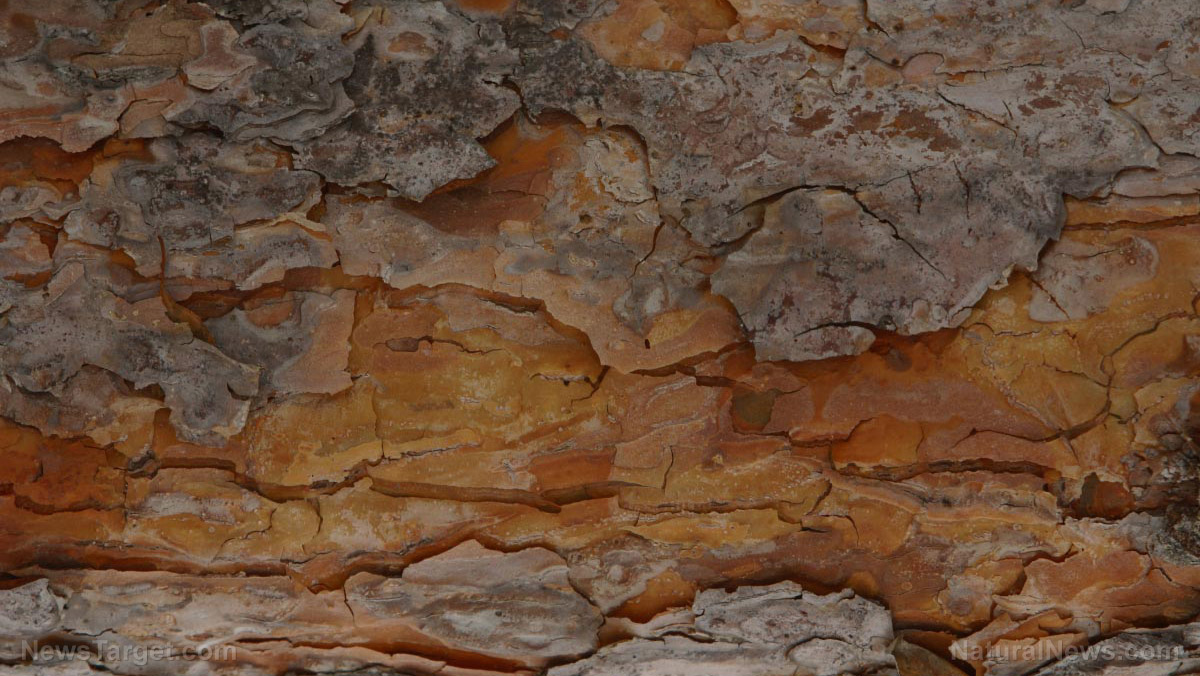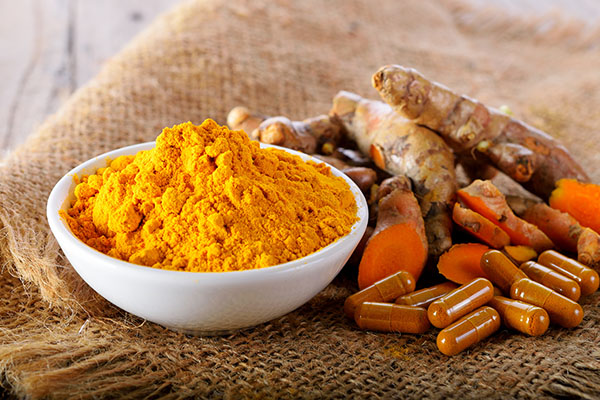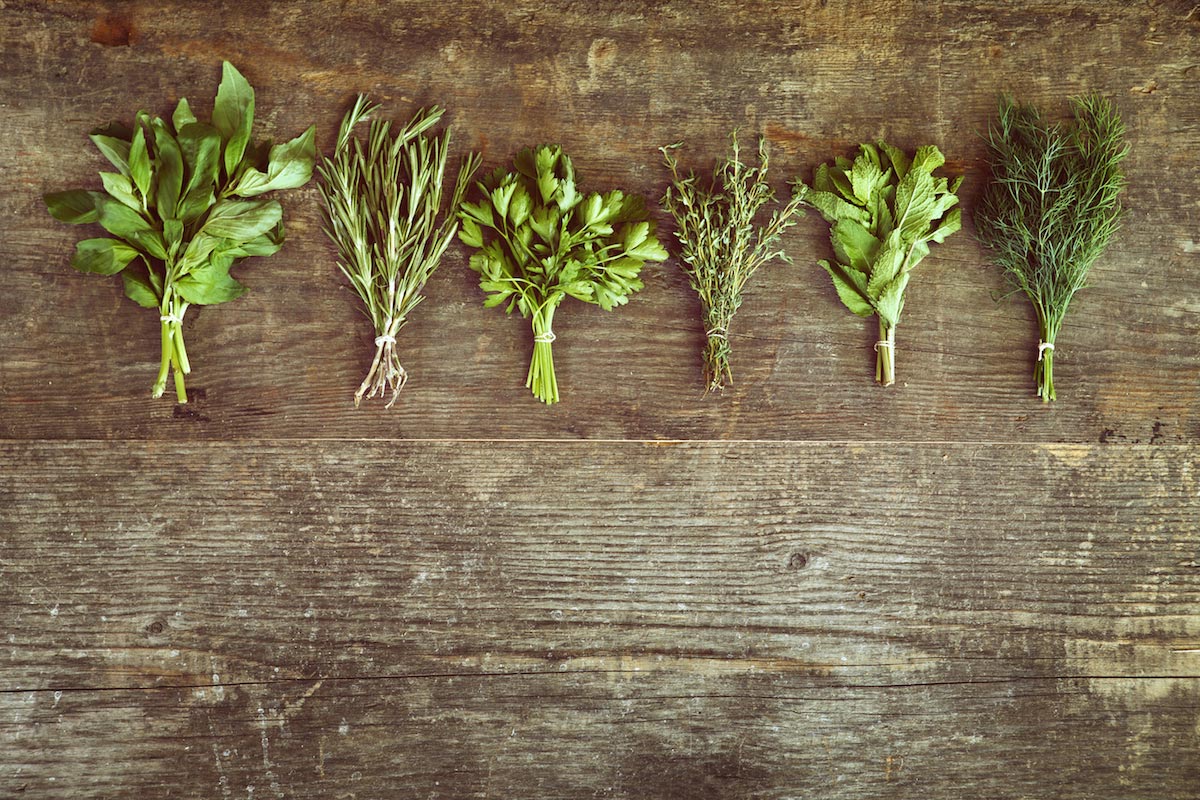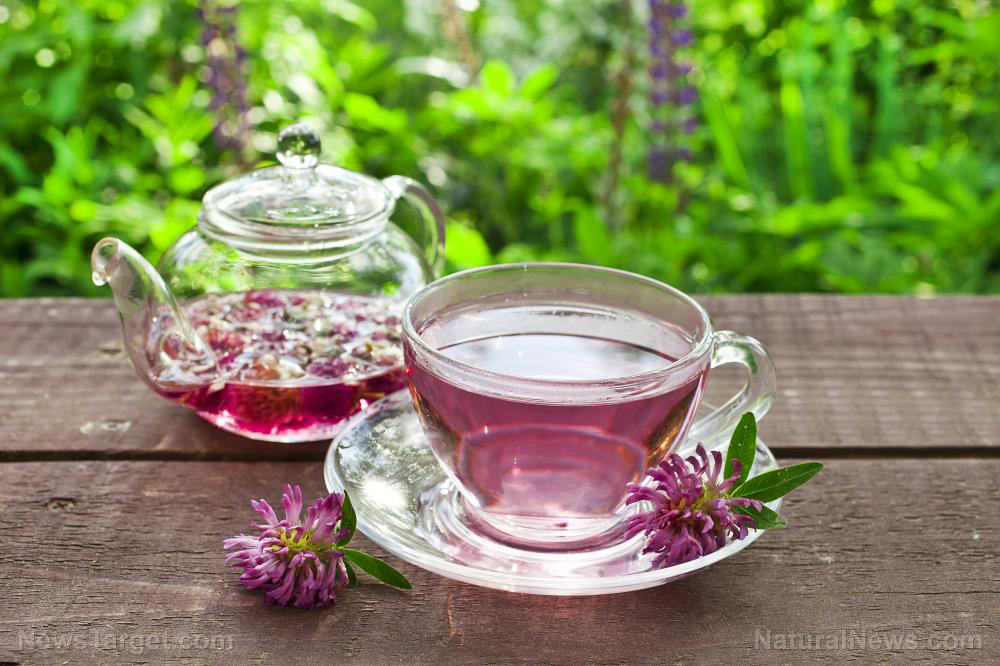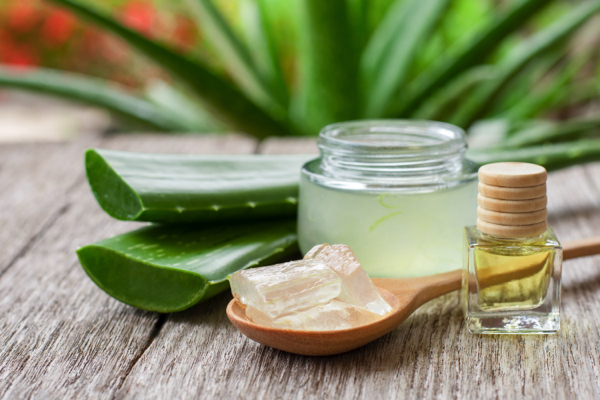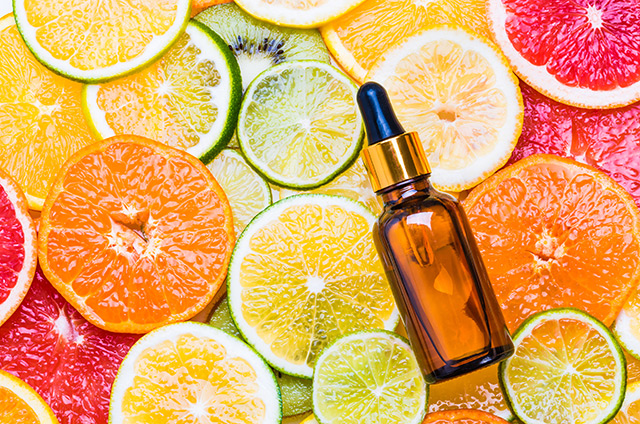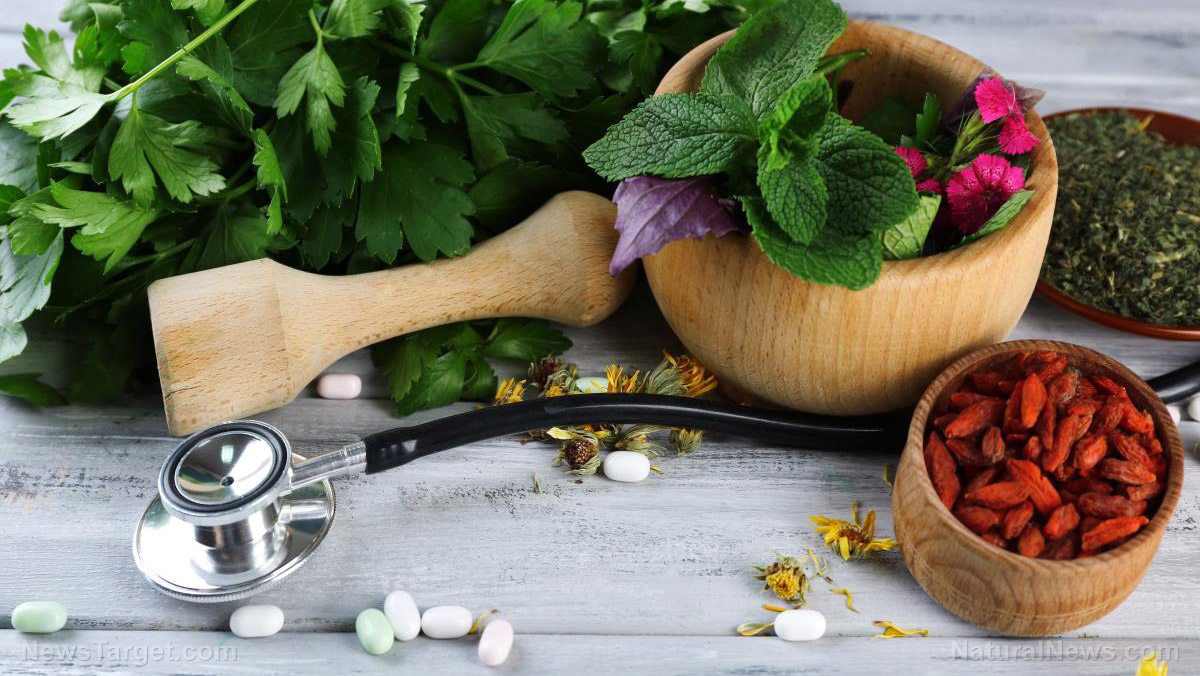Discover Beta-pinene: The fragrant compound in pine trees with many health-supporting properties
08/27/2025 / By Ava Grace
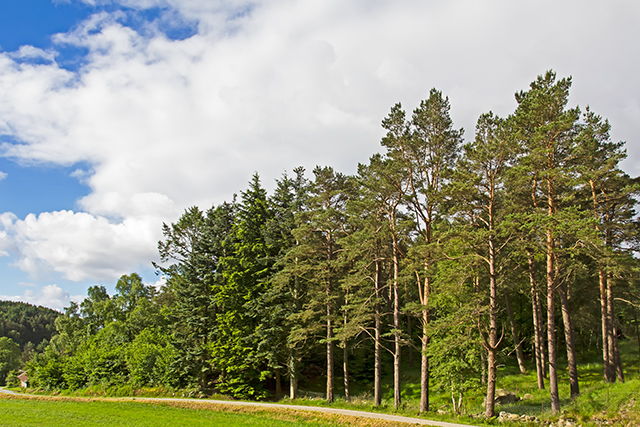
- Beta-pinene is a monoterpene, an isomer of alpha-pinene, known for its distinctive fresh, woody and pine-like aroma. It is found in many plants and conifer forests.
- It exhibits significant antimicrobial and anti-inflammatory properties and acts as an acetylcholinesterase inhibitor, suggesting potential benefits for cognitive health, memory and alertness.
- Its history is tied to the use of resinous plants in traditional medicine for treating respiratory issues and inflammation, as well as in ancient industries for products like turpentine.
- The best sources of beta-pinene are specific herbs (rosemary, sage), spices (cumin, cardamom), citrus peels and conifers.
- Beta-pinene represents a natural, plant-based compound gaining renewed interest for its health benefits and its role in the synergistic “entourage effect” of phytochemicals.
Walk through a sun-dappled conifer forest, crush a sprig of rosemary between your fingers or peel a fresh tangerine. The invigorating, clean aroma that fills the air is more than just a pleasant sensory experience; it is the signature of a powerful class of plant compounds known as monoterpenes. One of the most abundant and biologically significant monoterpenes is beta-pinene, an isomer of pinene that is emerging from the shadow of its more famous cousin, alpha-pinene, to be recognized for its own unique contributions to human health and wellness.
This colorless liquid, with its distinctive woody-green, pine-like scent, is a cornerstone of the plant kingdom’s defensive and communicative arsenal. Found in the essential oils of countless herbs, spices and trees, beta-pinene is not merely a source of fragrance but a potent phytochemical with documented antimicrobial, anti-inflammatory and neuroprotective properties. Its story is woven into the history of traditional medicine, the evolution of modern aromatherapy and the very air of the planet’s forests.
A chemical portrait: Defining beta-pinene
Beta-pinene is a bicyclic monoterpene, a hydrocarbon built from two isoprene units. Its molecular structure differentiates it from its isomer, alpha-pinene, altering beta-pinene’s chemical reactivity, aroma profile and biological activity. Beta-pinene is a colorless liquid at room temperature and is soluble in alcohol but not in water, which is why it is most commonly extracted and concentrated in essential oils.
The scent of beta-pinene is often described as fresher, drier and more herbaceous than the sharper, more camphoraceous notes of alpha-pinene. In terms of taste, beta-pinene contributes a characteristic pungent, woody and slightly spicy note to plants, though it is rarely experienced in isolation.
Historical roots and global presence
The history of beta-pinene is intrinsically linked to humanity’s use of resinous plants. For millennia, cultures around the world have tapped conifers for their resin, a sticky substance rich in pinene isomers that hardens into amber. This resin, often distilled into turpentine, was a cornerstone of ancient industries, used as a solvent, a component in varnishes and paints, and as a primitive waterproofing agent.
Beyond its industrial uses, plants rich in beta-pinene have a long history in traditional medicine. Native American tribes used pine needle tea, which is rich in beta-pinene, to treat respiratory ailments and scurvy. In Ayurvedic and Traditional Chinese Medicine, herbs like rosemary and sage were prescribed for their memory-enhancing and anti-inflammatory effects — benefits now partially attributed to their monoterpene content. Beta-pinene was first isolated and named in the 19th century as chemical techniques advanced, allowing scientists to probe the complex mixtures within essential oils.
A bounty of biological benefits
Modern scientific inquiry has begun to validate and explain the traditional uses of beta-pinene-rich plants. Research, primarily in vitro and in animal models, has revealed a spectrum of promising biological activities.
Beta-pinene’s most well-documented effect is as a broad-spectrum antimicrobial agent. Studies have shown beta-pinene is effective against various strains of bacteria and fungi, explaining why plants produce it as a natural defense and why it has been used historically as a preservative. Beta-pinene also exhibits significant anti-inflammatory properties by modulating pathways that trigger inflammation, offering a potential natural avenue for managing inflammatory conditions.
Perhaps most intriguing is beta-pinene’s influence on the nervous system. Beta-pinene is a known acetylcholinesterase inhibitor, meaning it can slow the breakdown of the neurotransmitter acetylcholine, which is crucial for memory, learning and muscle function. This mechanism suggests a potential role in supporting cognitive health. Additionally, beta-pinene’s presence in the air has been studied for its effects on mood and alertness, contributing to the renowned “forest bathing” phenomenon.
Dietary sources and supplementation
For people seeking to incorporate beta-pinene into their wellness routine, nature provides a generous and delicious pharmacy. Beta-pinene is found in a wide array of common culinary plants. Major dietary sources include:
- Herbs: Rosemary, sage, dill, basil, parsley, cilantro and marjoram.
- Spices: Cumin, cardamom, fennel seeds and coriander.
- Citrus fruits: The peel of lemons, limes, oranges and tangerines is particularly rich.
- Conifers: Pine and fir needles, as well as the resin itself.
- Other: Hops, which gives certain beers a distinctive piney note.
While beta-pinene is available as an isolated compound for research and industrial use, it is not commonly sold as a standalone dietary supplement for human consumption. It is best experienced as a component of whole-food sources or high-quality, food-grade essential oils used with caution and expertise. There is no established recommended daily intake for beta-pinene. Consumption should be through a varied diet rich in the herbs, spices and plants that contain it, allowing for a synergistic intake of other beneficial compounds.
Why this matters today
In an era of increasing antibiotic resistance and a growing desire for natural, plant-based solutions for health and well-being, compounds like beta-pinene are gaining renewed relevance. They represent a bridge between ancient wisdom and modern science, offering a blueprint for how the natural world can support human health. (Related: Nature’s pharmacy: 12 Essential herbs shaping modern health and wellness.)
As research into the entourage effect of phytochemicals continues, understanding the specific role of beta-pinene within the complex symphony of plant compounds becomes ever more critical. It is a reminder that sometimes, the most potent medicines and sensory delights are those that have been hiding in plain sight — or, more accurately, in plain smell — all along.
This story is not medical advice and is not intended to treat or cure any disease. Always consult with a qualified naturopathic physician for personalized advice about your specific health situation or concern.
For more fascinating insights into superfoods and their natural wonders, visit NaturalNews.com. It’s a treasure trove of articles that will deepen your understanding of the healing power of food.
If you’re into cutting-edge technology with a health twist, try Brighteon.ai. Created by Mike Adams, the Health Ranger, this AI model is a free download that you can run on your own device. It’s all about sharing knowledge freely and bypassing the filters of censorship.
And if you’re looking for a place to openly discuss everything from nutrition to natural remedies without any holds barred, head over to Brighteon.com. Don’t forget to check out these free speech social media platforms, Brighteon.IO and Brighteon.social, where the conversation is always lively and uncensored.
Watch this video and discover the many health benefits of Rosemary.
This video is from the Holistic Herbalist channel on Brighteon.com.
More related stories:
Rosemary essential oil can enhance working memory in children.
Gain sage-like cognitive function by adding sage to your diet.
Sage advice: Study reveals sage extract helps with hot flashes during menopause.
Sources include:
Submit a correction >>
Tagged Under:
alternative medicine, anti-inflammatory, beta-pinene, essential oils, health science, herbal medicine, Herbs, natural antibiotics, natural cures, natural health, natural medicine, Naturopathy, phytonutrients, pine, plant medicine, remedies
This article may contain statements that reflect the opinion of the author
RECENT NEWS & ARTICLES
Herbs.News is a fact-based public education website published by Herbs News Features, LLC.
All content copyright © 2018 by Herbs News Features, LLC.
Contact Us with Tips or Corrections
All trademarks, registered trademarks and servicemarks mentioned on this site are the property of their respective owners.

